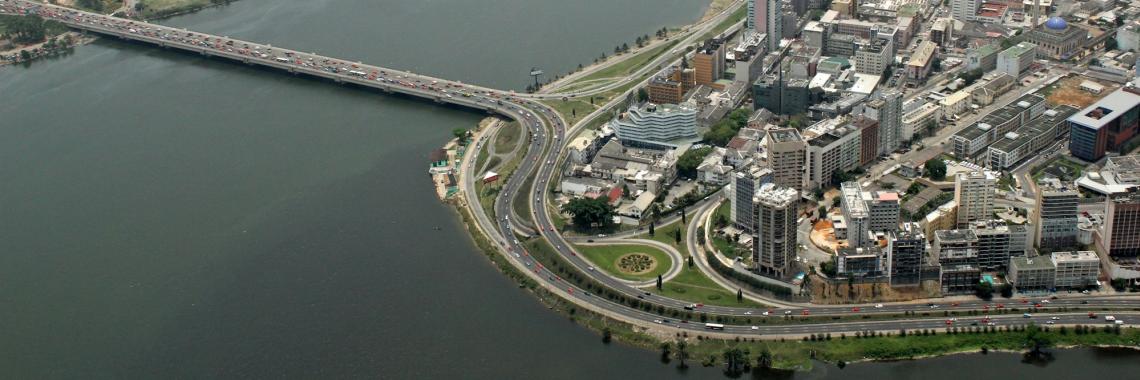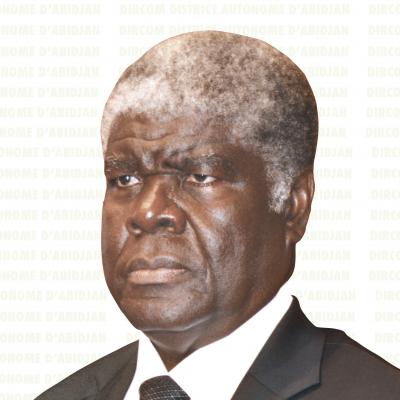
Abidjan
The economic capital of Ivory Coast, Abidjan is one of the largest urban centres of sub-Saharan Africa, both economically and demographically.
Bordering the Gulf of Guinea, in the Atlantic Ocean, the autonomous dstrict of Abidjan covers an area of 2,119 km2. The city is surrounded by water, which represents about 15% of its total area. Its climate is equatorial, with an average temperature of 27°C, two dry seasons and two rainy seasons.
The autonomous district of Abidjan is composed of 13 municipalities and three sub-prefectures. Its cosmopolitan population is estimated at about five million people with the presence of a strong foreign community predominantly from the Economic Community of West African States.. Virtually all nationalities are vpresent in Abidjan.
Economically, Abidjan hosts almost all of the country’s industrial and banking facilities. Its port, its airport, its road and rail networks are service points for the country and the entire subregion. By the importance of its traffic, the autonomous district of Abidjan undeniably positions itself as the hub of West Africa. All nations and international institutions are represented within the autonomous district of Abidjan.
In the autonomous district of Abidjan, the challenge of living together is to make sure that all local and foreign populations who live in its territory can live in peace and perfect harmony, freely exercising their economic activities in compliance with our laws.
Robert Beugré Mambé, Governor of Abidjan
Mayor
Keys facts
160 nationalities are present
5,195 foreign students in Abidjan’s universities (according to 1999 figures)
Abidjan harbour handles 57.8% of the maritime traffic for Mali and 40. 2% for Burkina Faso (source: International Trade Office)
